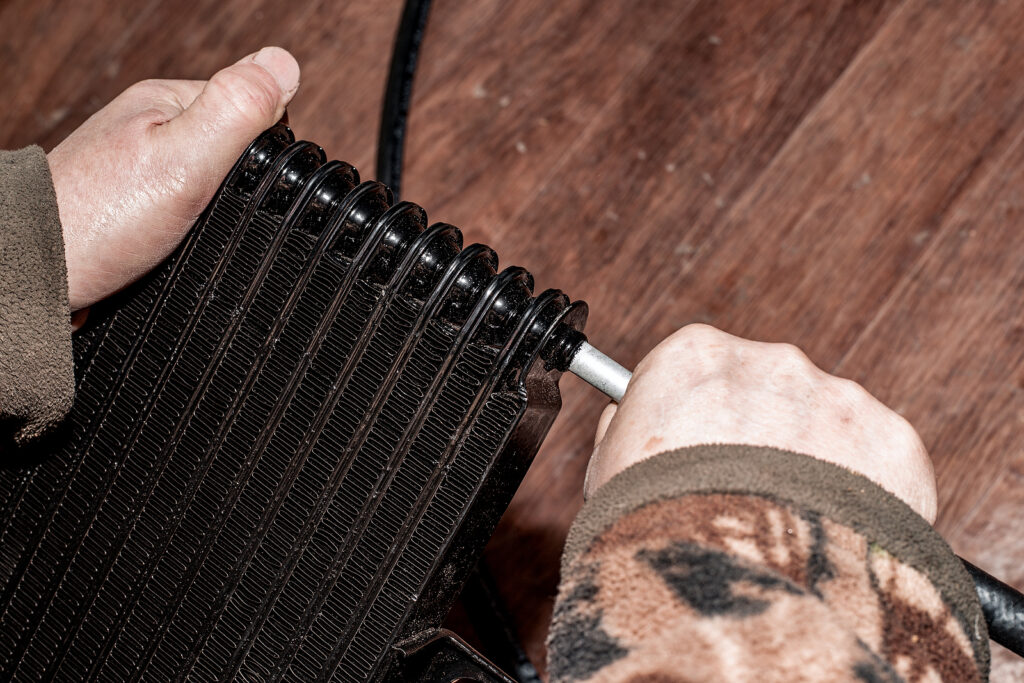If you are new to the world of trailer towing, you are already on the right track. Research and preparation are critical parts to towing safety. In order to tow your trailer, you need to fully understand the parts, process, laws, and safety regulations involved. On your way to learning how to tow, you have probably already gathered most of your towing parts, including your hitch receiver, ball mount, hitch ball, pin and clips, safety chains, and more.
But if you plan on using an automatic transmission vehicle to tow your trailer, there is another towing accessory that should never be overlooked, and that is an aftermarket transmission cooler. This is especially important this time of year when seasons are warming up.
Continue reading to learn what a transmission cooler is and what it does, and better understand their importance.

The Importance of Transmission Protection When Towing a Trailer
When towing a trailer, a vehicle’s automatic transmission must work harder to manage the extra weight and resistance of its load. And when a transmission works harder, it creates more heat, which is not good for transmissions. An aftermarket transmission cooler is a towing accessory that prevents an automatic transmission from overheating as it tows. This allows a vehicle to perform at its strongest while towing.
They operate by cooling heated fluid from the transmission, power steering, and engine. The heated fluid passes over the fins in the cooler, cools down, and then flows back to its original source in a loop-like pattern. This process keeps the transmission and other vehicular components from overheating as you tow your trailer.
How to Install a Transmission Cooler
There are a few different installation methods for transmission coolers. Most often, they are attached to the radiator or air conditioner condenser with narrow plastic rods, pads, and fasteners. You can also install them using a metal bracket mounting kit. Be sure to choose a cooler with quality cooling performance. The general rule of thumb is, “the bigger the cooler, the better the cooling capacity.”
Also, “plate-and-fin” coolers tend to perform better than “tube-and-fin” coolers. So that is something to think about when choosing one for your vehicle. Consider talking to a local and trusted tow truck operator for advice on mounting a transmission cooler for towing purposes.
Do you need professional trailer towing? Or are you dealing with a roadside trailer emergency? Contact Zore’s Towing for economically-priced towing and recovery service in Indianapolis, Indiana. We serve all of Central Indiana.
Related Posts:
3 Factors to Consider When Buying a Trailer Hitch
6 Maintenance Tips for Your Personal Watercraft Trailer
3 Simple Steps to Using a Trailer Hitch Adapter

